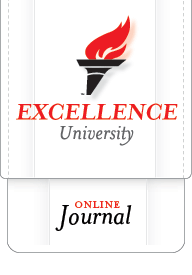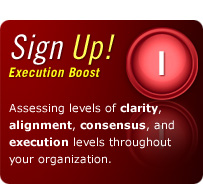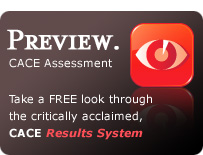WATER Tip: Self-Monitoring
December 26th, 2010
Another critical component of Execution Excellence is the ability to follow through with commitments without needing others to “check in” on one’s progress. The ability to self-monitor begins with a commitment to being reliable, is strengthened by the ability to set truly SMART Goals, and is fortified further by the ability to remind oneself of one’s commitments regularly (rather than depending on others to do so). Specific (the “S” in SMART) and time-bound (the “T” in SMART) goals help one to be very clear on commitments before they are accepted. Regular goal achievement becomes more realistic (the “R” in SMART) when every individual responsible for the achievement of every goal takes accountability for the following: (a) the SMARTness of every goal they agree to take on and (b) reminding themselves of this commitment (rather than depending on others to do so).
For example, the goal “Take out all trash every Wednesday before 9AM” is more SMART if the person who committed to this goal is clear about (a) what to do, (b) when and how often to do it, and (c) his responsibility for reminding himself to do this on deadline every week. On the other hand, if the goal is committed to without clarity about (a) all of these critical components and (b) one’s own responsibility for getting oneself clear on all goals that one takes on (which may include asking a supervisor to clarify vague goals), the goal is less likely to to be achieved on a regular basis.
If a goal or a deadline is overlooked, it is often important to address reasons why immediately. If one goal or deadline is overlooked due to a lack of specificity and/or a lack of personal accountability for remembering to accomplish the goal on deadline, it may become much more acceptable (to the individual and to others) to (a) overlook other goals and deadlines related to other commitments and/or (b) blame others for failing to provide reminders to complete goals on deadline. Acceptance of a failure to achieve important goals at a high-level of quality by specific deadlines is often a major barrier to success and work/life satisfaction.
Failure to self-monitor can quickly spread the Execution Crisis throughout your life and the lives of those around you. The ability to monitor oneself and to promote self-monitoring in others is a critical skill associated with spreading Execution Excellence. On the other hand, inability to do so is another powerful contributor to the Execution Crisis.
- NOTE TO THOSE USING THE MISSION FULFILLMENT SYSTEM A common indicator of high levels of Self-Monitoring is a combination of: (a) fewer follow-up calls, emails or questions from others about your SMART Goal progress, which can take up others’ time and energy and (b) a high Personal “Go-Active %” score on your Progress/People subtab, which is located to the right of the Progress/Items subtab (on the upper left-hand side of the main Progress Tab). Personal Go-Active % scores are located on the far right-hand side of the screen, and are displayed as bar graphs. For instance, if one consistently achieves the SMART Goal “Take out all trash every Wednesday before 9AM” on time,that person’s Go-Active % score is more likely to be at 80+ percent (indicating Execution Excellence). Obviously, a lack of self-monitoring is a major block to Execution Excellence. It is critical that people be able to monitor their own SMART Goal achievement; an inability to do so contributes greatly to the Execution Crisis.
- FOR THOSE WHO ARE NOT ON THE MISSION FULFILLMENT SYSTEM: Click here to for more information and click here to sign up.
FINAL NOTE: If you were linked to this article by a video or email, please return to that link and proceed with any other instructions that you deem helpful.
Article Filed under: 1. WATER Game Scorecard Tips



1 Comment Add your own
1. Lindsey E | October 13th, 2014 at 7:15 pm
Self-monitoring is personally one of my strongest skills. This is because, early on in my life, I was involved in situations that demanded me to be able to self-monitor in order to maintain what I was doing. For example, I was a gymnast, went to school, and danced, all at the same time. Between homework and meals, I had practice, and on the weekends, I had recitals or competitions. I was always going, but I really enjoyed it.
However, my mom made it clear to me that school came first, so no matter how much I enjoyed gymnastics and dance, I was only allowed to partake in the activities if my schooling went well. So I came up with a schedule, and stuck to it week in and week out. During the weekdays, I would go to school, get picked up and go to gymnastics, go to dance after, and if I had any time in between these, I would do my homework. Then after practice, I would go straight home, eat dinner, do all my homework, and then go to bed. I stuck to that schedule like clockwork for about 5 years of my life. Weekends were a bit more flexible, but I still made sure to take care of my homework and then go to practice.
Thus, I had a good foundation that taught me self-monitoring. However, in the recent years, especially the last 2 years of college, I refined my self-monitoring skills to be even better, and it has truly worked wonders. I feel as if I can accomplish anything, so long as I make sure I self-monitor properly.
For example, to help keep my goals and to-do’s readily available, I keep a google calendar and use the tasks to keep track of my to-do list. I also use the calendar itself to input events such as meetings, appointments, and interviews, in order to visually see what I have to do when. When I complete a task, I check it off on the calendar itself, and it marks it through as completed. This is beneficial in many ways because it shows you your progress, but also keeps your to-dos readily available and easy to see. I can even pull it up on my phone, so this is always an available resource for me.
I also have generic time constraints in my head that I stick to, which help to plan my to-dos accordingly and follow my time-bound goals. For example, I always make sure to start studying for exams at least a week before the exam. So, when inputting test dates on my google calendar, I would make sure to put a to-do at least a week before stating, “Study for X exam,” and always had that as a reminder.
To specify further on this goal, I would add to the description in the task. For example, under “Study for X exam,” I would write something like, “Read through chapter 1 notes,” or whatever was applicable and reasonable. Thus, I would address what I needed to do, and break the goal down into a yes-no activity that is easy to self-monitor on. Here’s an article on yes-no activities: http://www.excellenceuniversity.net/journal/430/execution-tip-think-about-your-activity-clarity
Now, if I want to accomplish any goal, not only do I break it down into monthly, weekly, and daily goals, I also set up goals that are fairly straightforward and easy to self-monitor on. Part of self-monitoring is following through with your commitments, but another part is also being SMART with yourself and your goals so you can realistically self-monitor your progress. For me, google calendar works wonders and allows me not only to see what needs to be done, but also look back and see my progress on what I’ve done and how I continue to improve at self-monitoring. Hooray for reinforcement!
Trackback this post | Subscribe to comments RSS Feed
Leave a Comment
Some HTML allowed:
<a href="" title=""> <abbr title=""> <acronym title=""> <b> <blockquote cite=""> <cite> <code> <del datetime=""> <em> <i> <q cite=""> <s> <strike> <strong>